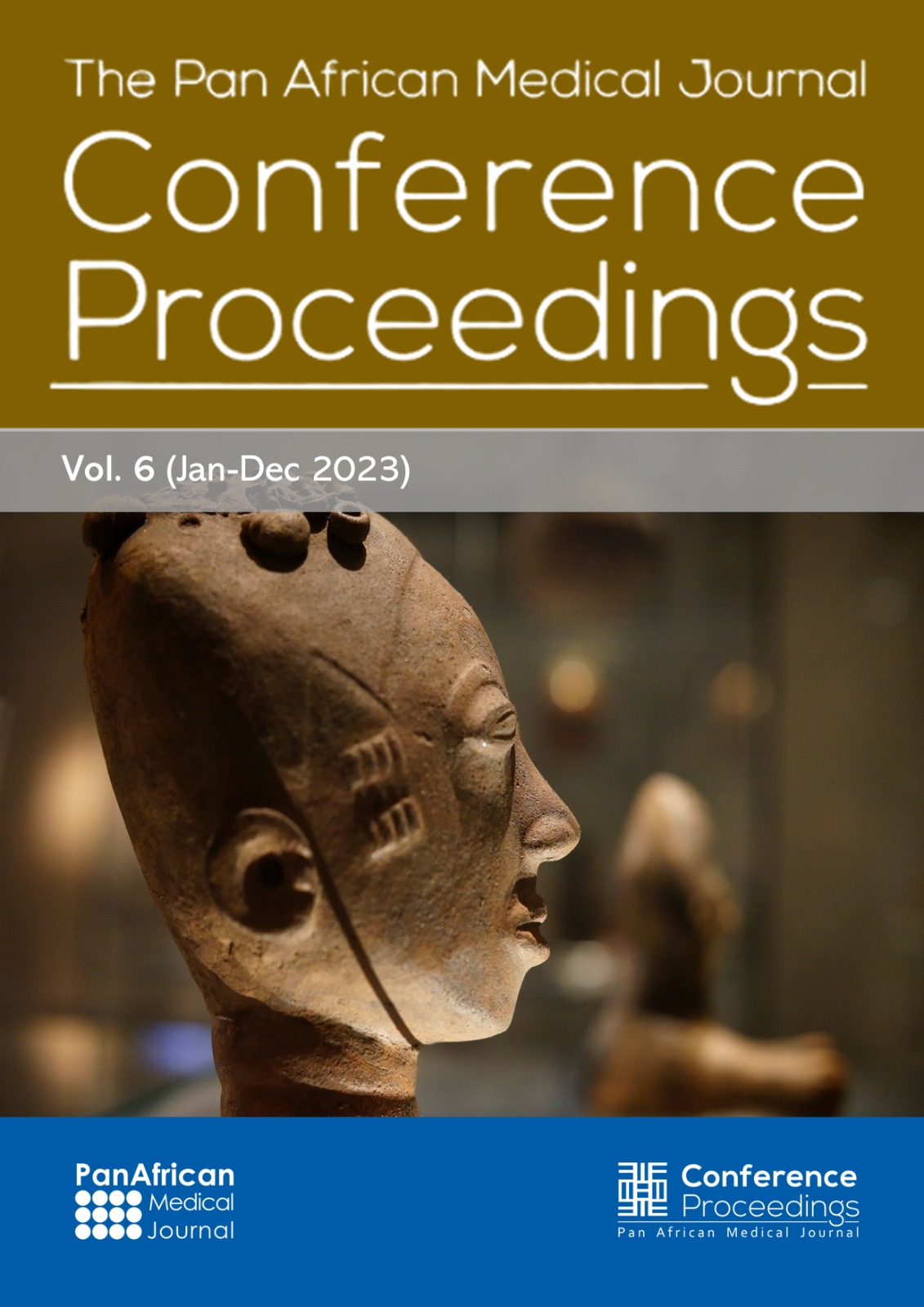Conference abstract
“It is not a disease but we treat it as a seriousness” Perception of childhood malnutrition and health seeking behaviour in rural Bihar, India: a qualitative study
Pan African Medical Journal - Conference Proceedings. 2018:9(9).10
Oct 2018.
doi: 10.11604/pamj-cp.2018.9.9.735
Archived on: 10 Oct 2018
Contact the corresponding author
Keywords: Malnutrition, perceptions, health seeking behaviour
Poster
“It is not a disease but we treat it as a seriousness”. Perception of childhood malnutrition and health seeking behaviour in Rural Bihar, India: a qualitative study
Doris Burtscher1,&, Sakib Burza2
1Médecins Sans Frontières, Vienna, Austria, 2Médecins Sans Frontières, India, Operational Centre Barcelona, Athens, Greece
&Corresponding author
Doris Burtscher, Médecins Sans Frontières, Vienna, Austria
Introduction: community perceptions of health and illness, and how traditional and allopathic medical providers are viewed, determines how effectively medical NGOs such as Médecins Sans Frontières (MSF) can provide care. Since February 2009, MSF has implemented a community-based nutritional programme in biraul block, an area in Darbhanga, in the rural state of Bihar, East India. Dharbhanga is one of the most disadvantaged of Bihar's 38 districts. The programme has admitted more than 12,000 children, but has a relatively high defaulter rate of 35%. We undertook a qualitative study to assess perceptions and the understanding of childhood malnutrition, and associated health-seeking behaviour in biraul block.
Methods: in 2010, 58 qualitative semi-structured and narrative interviews dealing with malnutrition were undertaken with families of both malnourished children and non-malnourished children (mothers, fathers, in-laws), and healthcare workers (traditional healers, traditional health practitioners, midwives, hospital nurses, doctors). 150 people were interviewed in individual and group discussions.
Results: malnutrition did not tend to be viewed as a disease, meaning that people were unlikely to consult health workers if a child was "only skinny". Traditional beliefs tended to inform understanding of disease. People regularly consulted Hindu and Muslim priests or other non-allopathic traditional health practitioners who were easier to access than conventional health facilities. Findings did not differ between families of children with and without malnutrition. Senior family members and village elders had significant influence over the parents of the malnourished child in terms of decisions to seek treatment and type and location of treatment sought.
Conclusion: health education programmes are needed to inform people about malnutrition in this context, and improve awareness that it is a disease that can be treated. Programmes must engage individuals and communities, including traditional healers, so they can develop a holistic approach within existing social structures.








